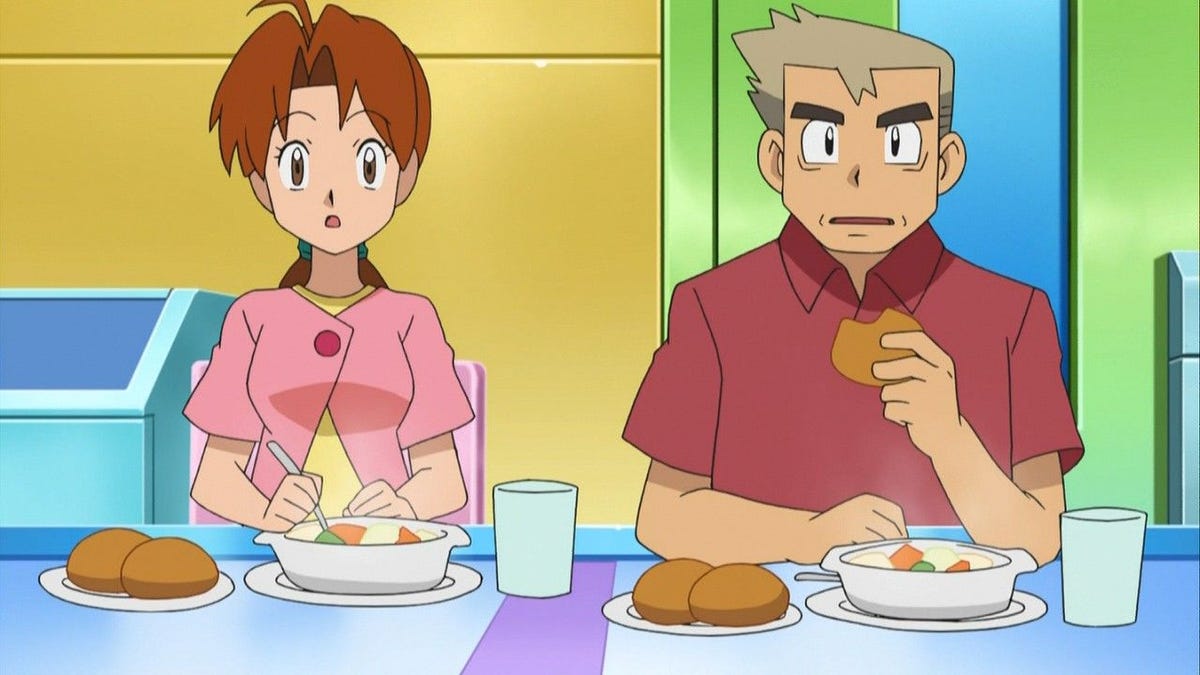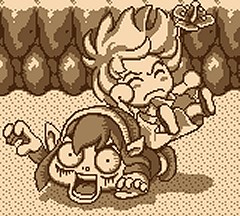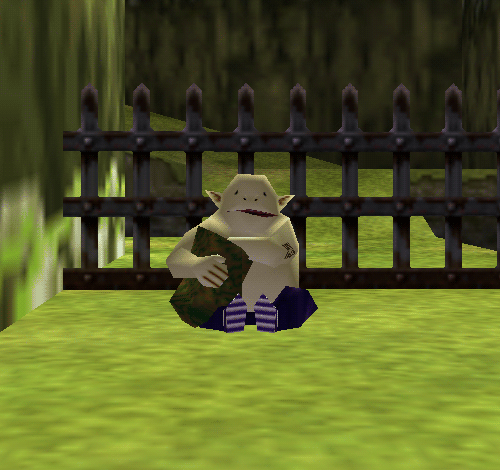What's something mature ? (One Shot)
2020-11-19
Just spend 5 minutes on any forum, and you will see ton of people yelling about their tastes. The arguments that mark me are the depth, complexity and maturity. Coming out a little traumatized each time, I ended up telling myself that being a real adult is all about consuming very mature things. As a fine wine with 300 years under the belt to a post-modern critique of capitalism...
But what does that mean anyway ? Most importantly, how is something supposedly mature better than something that isn't ? Because yelling things like "Pokémon is childish"... Well ok man, why not. However, is it immature because of that ?
Actually, I don't really care about Pokémon, the example was just clear. So I'm going to use the "mysterious" Zelda saga instead, to try dissecting all that.

It's like a fruit
What has always troubled me with "maturity" is that the word often seems to be used as a suitcase. So, let's take a look at Wikitionnary to make some sense of it. Basically, maturity is when an organism has reached its full potential. Like, a ripe fruit. If I transfer all of this to humans, then would maturity be when the brain finished developing itself ? The problem I have with this definition is that it's pretty much limited to organic being and a work of fiction, well, is not. A person nearing the end of life, in turn, could be considered quite mature. Not necessarily for their biology, but their life experience. In other words, wisdom.
Wisdom ...
Seriously, this word... That's the one that makes everything so complicated. Wisdom, it is not easy to define and I do not want to embark on this slippery ground. Continuing on the tangent, however, I imagine that we will often consider a person as mature when they have enough humility and clairvoyance to describe things for what they are. In short, like a fruit developed enough to be savored, it is an idea ready to be shared with and interpreted by other people.
Here we have 2 elements : a temporal one, which comes down to the development of a complexity, and therefore of nuances. Like a well fermented wine I want to say. The other, ideological, which comes down to the value of words depending on the circumstances. It is this second point I think that really poses a problem.
The Zelda saga is in my opinion an excellent example to deal with the subject. It brings together games that are fairly easy to enjoy and that have shaped the imagination that many young people, now adults, have of video games and even of the world in general. There is no denying it, there are wonderful thematics in Zelda, especially in those that have marked today's adults. In other word, Link's Awakening, Ocarina of Time and Majora's Mask I swear, I'm not biased. From this bond that many of us have with this serie, a tendency to put it on an estale foot is still very common, especially among those biggest fans. Something that leads the debates on the maturity of the series to be quite hot honestly...
So what? Zelda. Is it mature or not?
If I went with what I described above, well... Yes and no actually.

A video game is quite a complex object anyway... Technically speaking, Ocarina of Time is very immature, as it is one of the first three-dimensional games. So the technique certainly had time to ferment a little to arrive at what it is today. At the same time, it is also among the first to offer a pleasant 3D experience with a camera that decides not to do anything. This meant that the developers were mature enough with informatic to experiment with something new and master it. Really, this is not nothing. This example touches a little on what we have defined as temporality.
Comes the ideological side...

I believe that when it comes to maturity, there is a tendency to not make a distinction between what is adult and childish. People take for granted that adult = mature and childish = immature, hence the example that Pokémon is too "childish", while I actually don't care. In these times, it is more a question of who is the target audience, because each and everyone has different referents. These referents are those images to which we link things in order to make sense of them. Usually, between an adult and a child, those images differ. The glaring example being death, although it is debatable. So, a childish work can easily seem adult for a person who will reinterpret its meaning as they age. On this point, the Mother/Earthbound saga is fascinating, but this will be for another time. There are also the representations of sexuality between Japan and the West which is very interesting. That of Japan will often be considered childish, while the referents here differ because of the culture rather then the age. Well, I'm not going to talk about it because this post will never end.
With that I suppose, we agree to say that the living experiences of adults and children are differents. What if we came back to maturity? Mature remarks would bear the wisdom of experiences. The immature ones, instead, bear a desire to have this experience. This results in forced or misinterpreted representations. Knowing in which categories those remarks fall then comes down to considering whether they have sufficient mastery of their subject, which depends on each person's own judgment. For example, just because something deals with sex and drugs doesn't mean that it's necessarily mature. Especially when there's a flagrant lack of nuance as a jaded character that expresses itself only by saying "fuck" and "shit". At the same time, expressing oneself in superb sentences to say absolutely nothing reveals the same immaturity, namely, not being able to show things for what they are. The superfluous contributes nothing, if not a cover-up for this lack or a difficulty to be concise. It can also be true the other way around. To represent the teenager touching drugs as a bum which will end up in the street represents a serious lack of understanding of the teenage reality. Although it is rather propaganda to raise awareness on the subject, but hey...
Here comes the magic of subtlety, as it allows subjects to be dealt with, without falling into a depth that would betray a lack of skills. The subtlety also allows the formation of a space of interpretation for the player in order to fill the gap left. This space of interpretation specific to each and everyone means that the thematics conveyed come both from the game and from our own sensitivity. Bam, an illusion of maturity necessarily emerges from such freedom. If subtlety can then be a clever way to fill in the gaps, being able to use it correctly implies sufficient maturity among authors. Knowing when to mark the line requires a mastery of the subject, but also a desire not to impose its own vision on others.

Zeldaaaaa !!!!!
Daaaaamn... I think we're starting to get by.
For example, Ocarina of Time deals with a coming of age story, represented by mourning. Throughout his quest, Link can't stop losing friends and other beings close to him. The Great Deku Tree, Saria, Navi, the entire kingdom of Hyrule following the 7 year voucher, yada yada. Link is cut off from the world, even, in a way, rejected by it. As much as his childhood quest is the discovery of the world following the loss of a parental figure, his adult one is to accept that the world will never be the same again. The game is once again quite varied and subtle so as not to mumble its players in order to leave them free to interpret. In short, it looks like we have a mature example here.
In order to stay with the scenario, the game is also immature on certain points. Ganondorf. This is interesting, because it comes down considering whether racism, or even sexism, is proof of immaturity ? It's hard to criticize this, as such a thing is more like judging the culture encompassing the game rather than the team behind it. So how is Ganondorf's conception immature ? He is too much of a function character, given his importance. It is something that Majora's Mask (with Skull Kid) and The Wind Waker will correct. Not by giving their villain reasons to act, but by offering them a behavior that justifies their actions. Unlike the themes of mourning, OOT hammers out the role of Ganondorf without giving the character any freedom of interpration, other than his function. For characters like Majora or Demise, it works cause they are avatars. They are a physical representation of what evil is, what Breath of the Wild decides to push to the extreme. Ganondorf OOT on the other hand, he's a McGuffin who only serves to justify the quest for the game, without being an avatar. This is not a problem in itself. It just makes him an immature, incomplete character. I admit I'm not too convinced that said ... I can't put my finger on what the problem is exactly.
The End
This one shot is starting to get long, so I'm going to warp it up a bit.

Maturity is a guarantee of quality I suppose, but does not necessarily lead to risk taking. I admit having a weakness for what is immature as a result of an attempt, unlike what is mature, but reproduce what already exists. Attempting new things necessarily leads to a certain immaturity and it is through their reproduction that one can hope to reach maturity. After all, the value changes completely between the temporal and the ideological facets. At the same time, a work can have so many aspects that necessarily, some will be more mature than others. Neither do I want to fall into an absurd relativism where it is no longer even possible to criticize things. I just want to say that everyone has their own referents and that if there is the desire to deal with the maturity of a work, even its quality, it is necessary to use the same referents. Without them, people are just all talking about different things.
That's all. See ya.